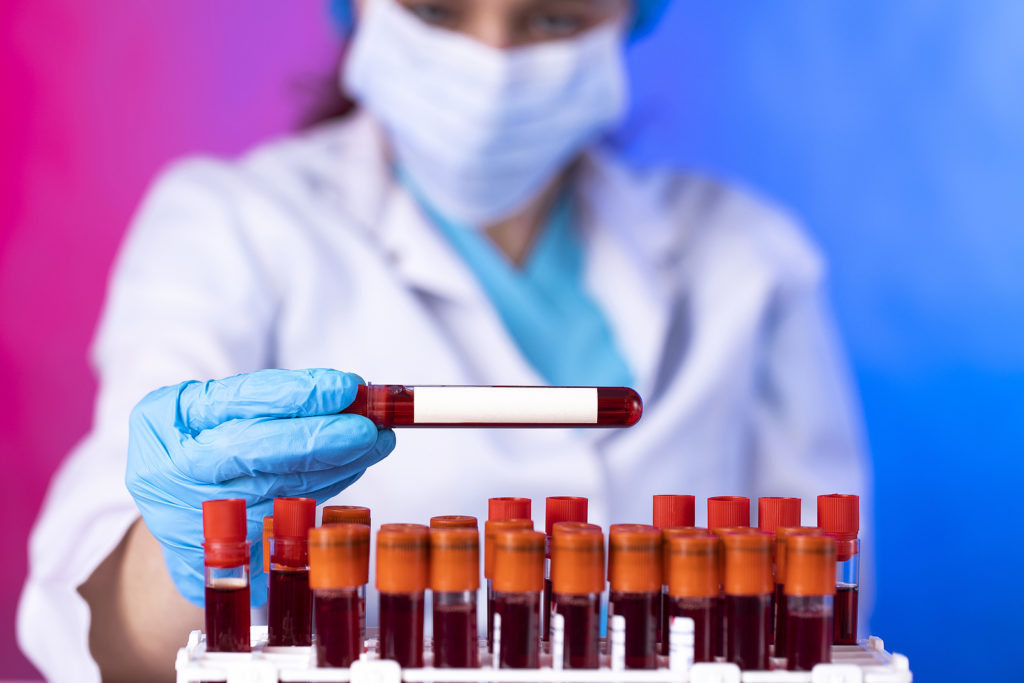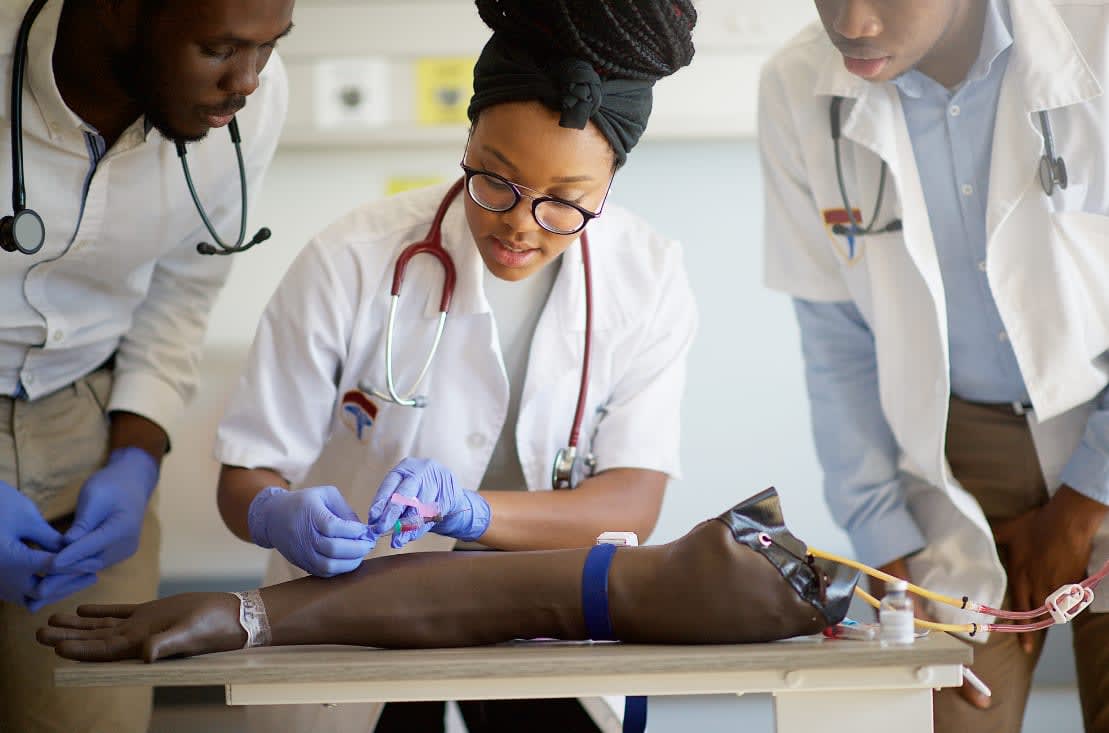What Sets Apart High-Quality Phlebotomy Courses Near Me From the Rest?
The Path to Qualification: Understanding the Phlebotomy Educating Training Course Trip and Its Relevance
As you think about the path to certification in phlebotomy, it's important to recognize the duty you'll play in health care. Your training will cover important skills, from blood collection techniques to patient communication.

The Role of Phlebotomists in Medical Care
Phlebotomists play an important role in the medical care system, serving as the important web link between individuals and important analysis testing. You'll execute blood attracts, guaranteeing examples are gathered properly and safely. Your expertise assists in diagnosing medical problems, checking health and wellness, and leading treatment choices.
In your daily interactions, you'll require to establish depend on with people, making them really feel comfortable during what could be a stressful experience. You're accountable for classifying and dealing with examples meticulously to avoid contamination or mistakes, which could influence examination outcomes.
Beyond this, you'll often work alongside doctors and nurses, communicating vital info regarding individuals' problems. By grasping your abilities, you add meaningfully to patient treatment, making you a vital component of the clinical team.
Summary of Phlebotomy Training Programs
When checking out phlebotomy training programs, you'll locate numerous kinds made to fit various routines and discovering styles. Each program helps you develop essential abilities like blood collection and person communication. Recognizing these choices is essential to choosing the right course for your job.
Sorts Of Training Programs
Several kinds of training programs are available for those looking to end up being competent in phlebotomy. In addition, some medical facilities and facilities offer on-the-job training programs, supplying sensible experience while you learn. Whatever course you pick, each program aims to furnish you with the essential skills for a successful phlebotomy occupation.

Secret Abilities Created
Mastering phlebotomy requires a set of essential skills that are established with detailed training programs. You'll discover technical skills like appropriate blood vessel option, needle insertion, and blood collection strategies. These hands-on techniques assure you can carry out procedures safely and efficiently. Additionally, communication skills are fundamental; you'll require to interact with patients, explain treatments, and placed them at convenience. Recognizing makeup and physiology is crucial, too, as it helps you locate blood vessels and recognize the body's action to blood attracts. You'll acquire knowledge of safety methods and infection control, guaranteeing you maintain a sterile setting. Each of these abilities is vital for your success as a certified phlebotomist, making you a valuable property in any type of healthcare setup.
Key Components of a Phlebotomy Program
In a phlebotomy program, you'll focus on essential subjects that prepared for your future job. You'll take part in hands-on training that enables you to apply what you have actually learned in real-world setups. Both the core curriculum and functional experience are vital for your success as a phlebotomist.
Curriculum Review
While pursuing a phlebotomy training program, you'll experience a core educational program developed to furnish you with basic skills and expertise. Phlebotomy Courses Near Me. This curriculum normally consists of anatomy and physiology, concentrating on the blood circulation system and understanding blood elements. You'll likewise find out around different kinds of blood collection techniques, consisting of venipuncture and capillary slit strategies
Additionally, infection control and safety protocols are vital parts, guaranteeing you know how to maintain a sterilized atmosphere. You'll examine patient communication, emphasizing interaction and compassion, which are important for reducing patient anxiety. Finally, ethical and legal considerations will be addressed, preparing you for real-world obligations. This fundamental understanding will enable you to excel as a phlebotomist and provide high quality care in medical settings.
Hands-On Training Experience
Getting hands-on experience is an essential part of your phlebotomy training program. This sensible training permits you to apply what you have actually discovered in a real-world setup, enhancing your skills and confidence. You'll exercise venipuncture methods, find out exactly how to deal with different kinds of specimens, and obtain aware of the equipment used in the field. Under the assistance of experienced trainers, you'll refine your abilities, guaranteeing you're gotten ready for any kind of scenario you could face.
Additionally, you'll get the opportunity to engage with individuals, which is vital for establishing your interaction abilities. This combination of technical effectiveness and social skills is vital for your success as a certified phlebotomist. Inevitably, hands-on training is where concept meets practice, strengthening your understanding and readiness for certification.
Accreditation and Licensing Requirements
Prior to you can begin your profession in phlebotomy, it is essential to understand the accreditation and licensing needs that differ by state. Many states need phlebotomists to hold a qualification from a recognized organization, such as the National Phlebotomy Association or the American Society for Scientific Pathology. These qualifications generally include passing an examination that checks your expertise and abilities in the field.
Along with accreditation, some states have certain licensing demands. You might require to finish a specific variety of hours in medical method, send evidence of training, or undertake a background check. It is vital to investigate your state's laws to see to it you fulfill all essential standards.
Remaining educated concerning these needs not just assists you secure a position but also enhances your trustworthiness as an expert. By satisfying these requirements, you'll be well on your way to an effective job in phlebotomy.
Hands-On Training and Practical Experience
Hands-on training and sensible experience are important elements of your phlebotomy my site education, as they allow you to use academic understanding in real-world situations. Throughout your training, you'll involve in monitored venipuncture, learn proper strategies, and come to be aware of different blood collection devices. This direct participation is important for developing your confidence and sharpening your abilities.
You'll work very closely with knowledgeable experts who can guide you via the nuances of patient communication and sample handling. Each technique session not just reinforces your understanding yet likewise prepares you for the fast-paced environment of healthcare setups.
In addition, lots of programs incorporate professional rotations, permitting you to experience varied setups, from health centers to outpatient clinics. This direct exposure assists you adjust to different obstacles and client demands, ensuring you're well-prepared for your future duty. Embrace these possibilities, as they're necessary to becoming an experienced and compassionate phlebotomist.
Obstacles Dealt With During Training
While obtaining hands-on experience is crucial, it's important to recognize the obstacles that can emerge during your phlebotomy training. Furthermore, mastering the abilities required for blood attracts takes method; you might struggle with method initially.
Time management can also be a difficulty, as balancing theory, functional sessions, and individual commitments can really feel intimidating. You might face varying discovering speeds among your peers, resulting in feelings of insecurity if you believe you're dropping behind. Adjusting to the various individualities of instructors can be tough, as each might have a special training style.
Recognizing these barriers early on can prepare you for success and help you establish resilience throughout your training journey.
Occupation Opportunities After Qualification

As you get experience, you could also consider concentrating on locations like pediatric or senior citizen phlebotomy, satisfying specific individual needs. Some phlebotomists select to progress their professions by becoming laboratory technicians or going after further education in health care fields.
In addition, your certification can cause duties in training or supervising brand-new phlebotomists, allowing you to share your knowledge. With the medical care market consistently expanding, your skills will always remain in demand, leading the way for a secure and meeting profession. Welcome the chances waiting on you!
Frequently Asked Concerns
What Is the Typical Duration of a Phlebotomy Educating Program?
Phlebotomy training programs generally last around 4 to 8 weeks. You'll participate in hands-on technique, class instruction, and on-line understanding. Completing this training prepares you for qualification and a rewarding profession in healthcare.
Are Online Phlebotomy Courses Available?
Yes, on-line phlebotomy training courses are available. They use versatility and comfort, enabling you to examine at your own rate. Just confirm the program is accredited to satisfy qualification needs and get useful skills for your occupation.
Exactly How Much Does Phlebotomy Training Commonly Expense?
Phlebotomy training generally costs in between $700 and $2,500, depending upon the program and location. You should take into consideration variables like course size, included products, and hands-on experience when picking the ideal training for you.
What Are Typical Prerequisites for Phlebotomy Training?
Typical requirements for phlebotomy training usually include my blog a high institution diploma or GED, immunizations, and a background check. Some programs might also call for standard health care expertise or qualifications, ensuring you're gotten ready for hands-on training.
Can I Function While Finishing My Phlebotomy Training?
Yes, you can work while completing your phlebotomy training. Several trainees equilibrium jobs with their studies, yet ensure to handle your time efficiently to ensure you satisfy both work and training commitments efficiently.